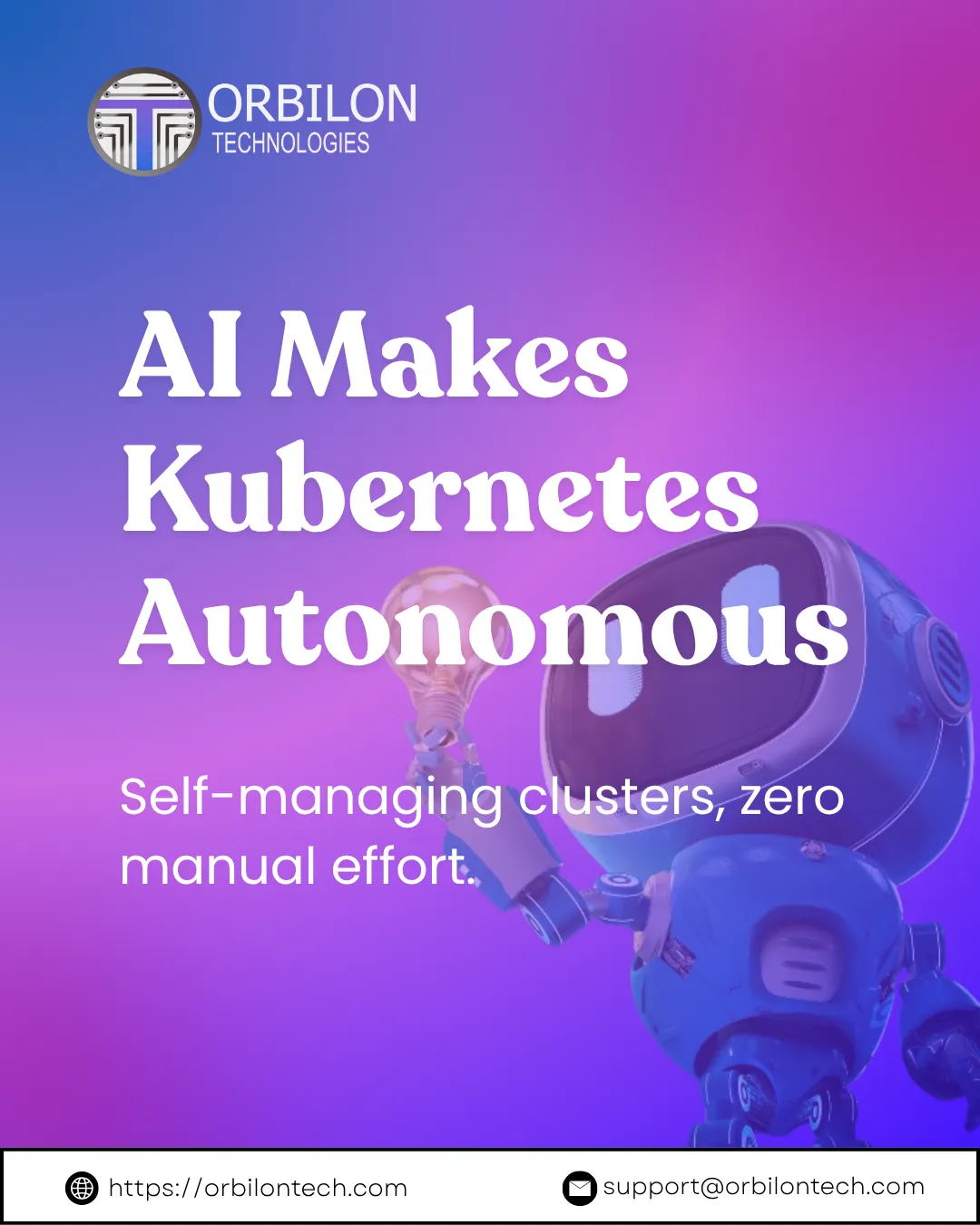AI Makes Kubernetes Autonomous: The Future of Self-Managing Clusters
Introduction
Kubernetes has become the backbone of cloud infrastructure in modern applications; however, management of Kubernetes clusters still requires constant effort. Fortunately, AI enables Kubernetes to become more autonomous by implementing intelligent automation to manage routine tasks with less thank human intervention. This improves operational stability, predictability, and scalability. AI also minimizes the manual workload, making it easier instead for teams to spend time innovating instead of just managing the cluster.
How AI Improves Kubernetes' Autonomy
AI integrates intelligence into Kubernetes, constantly monitoring, analyzing, and adjusting it. Rather than waiting for an administrator to act, AI finds the issue immediately and responds with automated actions. This allows the enterprise to operate more smoothly, impacting fewer services.
Advantages of AI-Enabled Kubernetes
- Self-Healing Infrastructure:
Artificial intelligence identifies issues at the very time and thus it fixes them quickly so as to keep the cluster healthy. - Autonomous Scaling:
Resources become capable of scaling themselves either up or down as per the demand, thereby achieving the goal of efficiency. - No Manual Intervention:
Restarting pods, balancing workloads, and performance management are some of the tasks that are done silently in the background without any manual intervention. - Predictive Maintenance:
AI detects the failure situations before they happen, thus greatly decreasing the downtime and increasing the system’s reliability. - Cost Savings:
More efficient use of resources leads to fewer expenses in the cloud and better overall performance.
Moreover, these features have the capacity to facilitate the holding of stability even during the busiest times or when there are sudden changes.
Reasons to Care for DevOps Teams
Traditional management of Kubernetes has to involve continuously monitoring and intervening. But the operational burden is greatly diminished by AI-run systems. DevOps teams can take a breath and increase their focus on more strategic development, allowing the AI to independently handle real-time cluster operations. Thereby increasing output and speeding up deployment cycles.
Authentic Cases of Autonomous Kubernetes
- Automized Load Balancing: The AI component will surface and provide load allocation to maintain consistent performance.
- Intelligent Autoscaling: The workloads will automatically scale out during high traffic and then scale back in afterward.
- Log Analysis & Anomaly Detection: The AI component will scour logs and flag any unusual behavior immediately.
- Resource Optimization: Resources are released automatically once they are deemed unused, focusing on eliminating waste.
Each case study shows how AI-driven automation enables greater efficiency across cloud environments.
Conclusion
With AI changing the future of DevOps into a fully autonomous version of Kubernetes, businesses benefit by having self-managing clusters in addition to optimization and predictive intelligence. The outcome is higher uptime and performance. Therefore, AI-driven Kubernetes is more of a strategy for the future than a point in time to enhance, and will enable organizations to build a scalable and reliable cloud experience.
Want to Hire Us?
Are you ready to turn your ideas into a reality? Hire Orbilon Technologies today and start working right away with qualified resources. We will take care of everything from design, development, security, quality assurance and deployment. We are just a click away.



